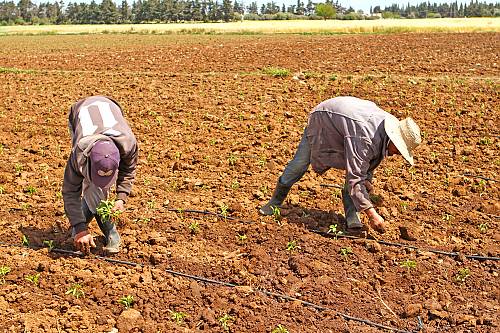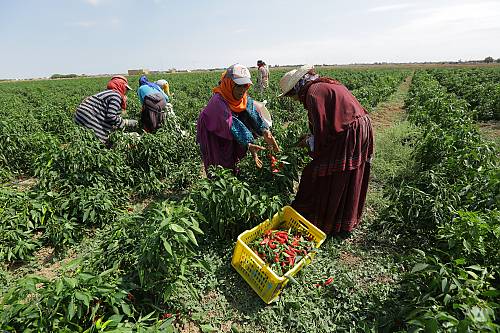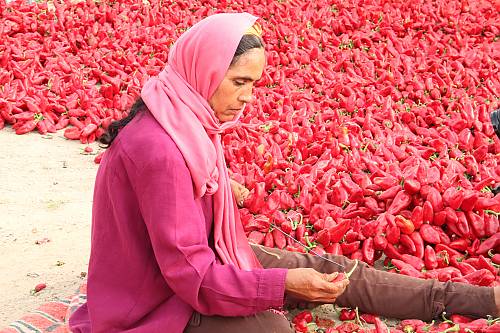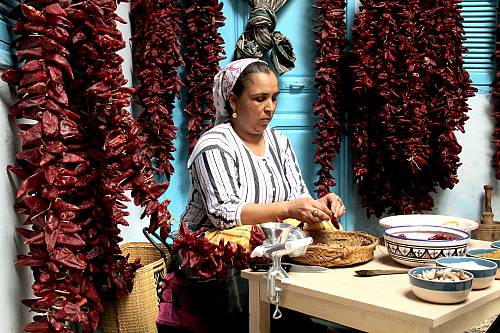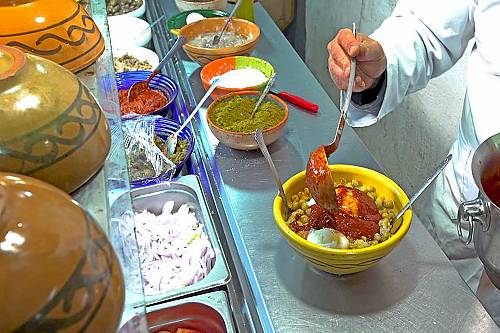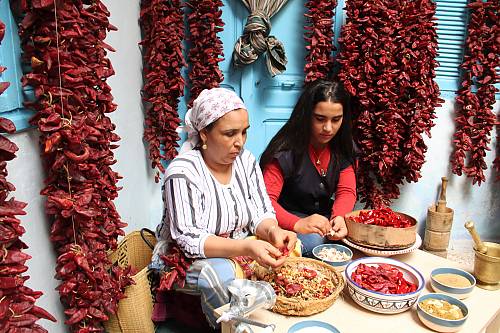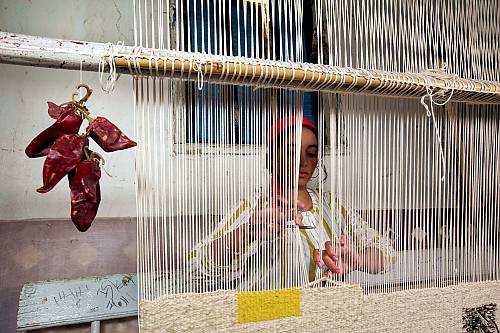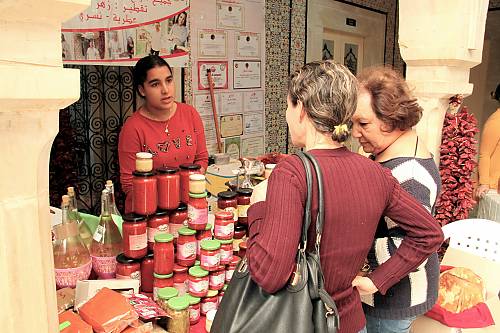Harissa, knowledge, skills and culinary and social practices
Inscribed in 2022 (17.COM) on the Representative List of the Intangible Cultural Heritage of Humanity

Harissa, a seasoning made with chilli pepper paste, is an integral part of domestic provisions and the daily culinary and food traditions of Tunisian society. It is usually prepared by women in a convivial and festive family or neighbourhood setting. It is prepared by drying the chilli peppers in the sun, and splitting the peppers, removing the stalks and deseeding. The chilli peppers are then washed, ground and seasoned with salt, garlic and coriander using a pestle and mortar or a manual meat mincer. The harissa is stored in glass or pottery for subsequent use. The cultivation of chilli peppers follows an agrarian calendar that prohibits sowing during certain periods, which are considered unlucky. Chillies are hung on looms and replicas are made from coral to avoid bad luck. The knowledge and skills related to chilli pepper growing are passed on within communities of farmers or through agronomy schools and institutes.
